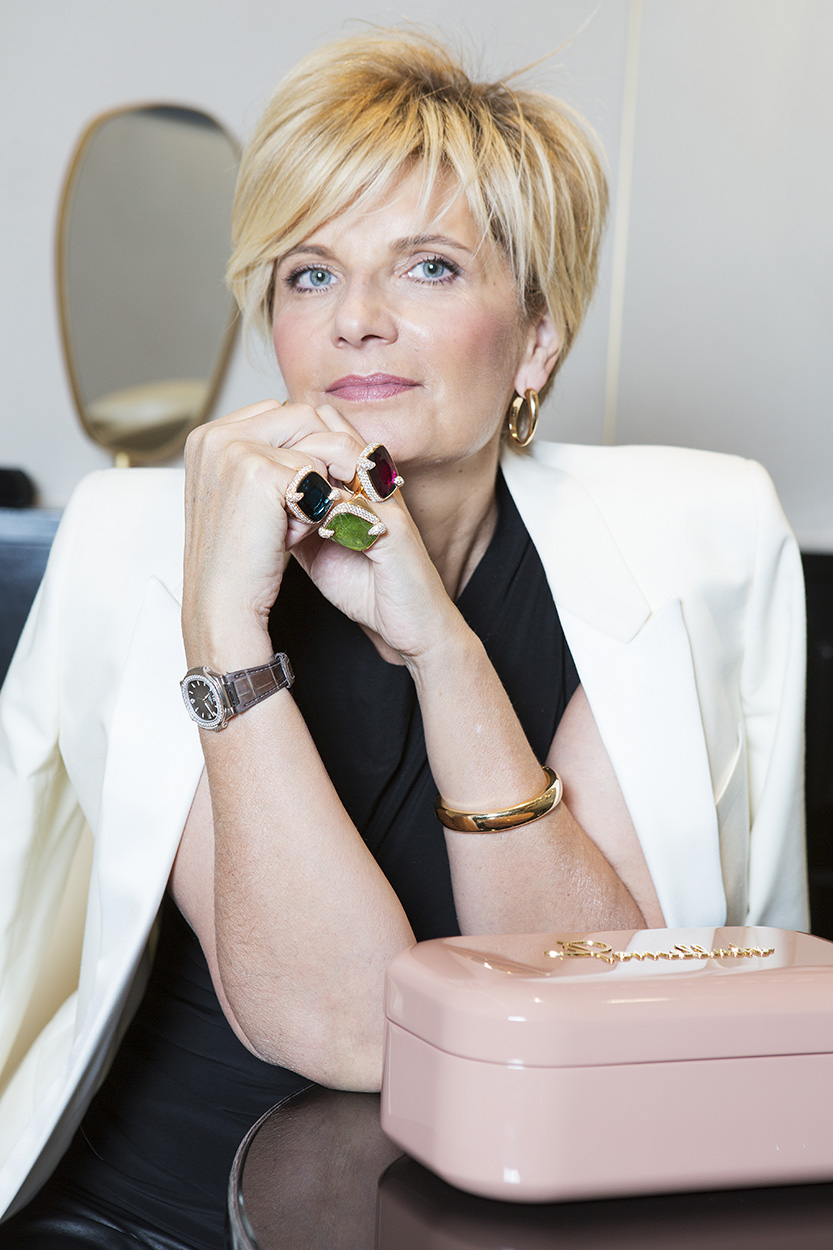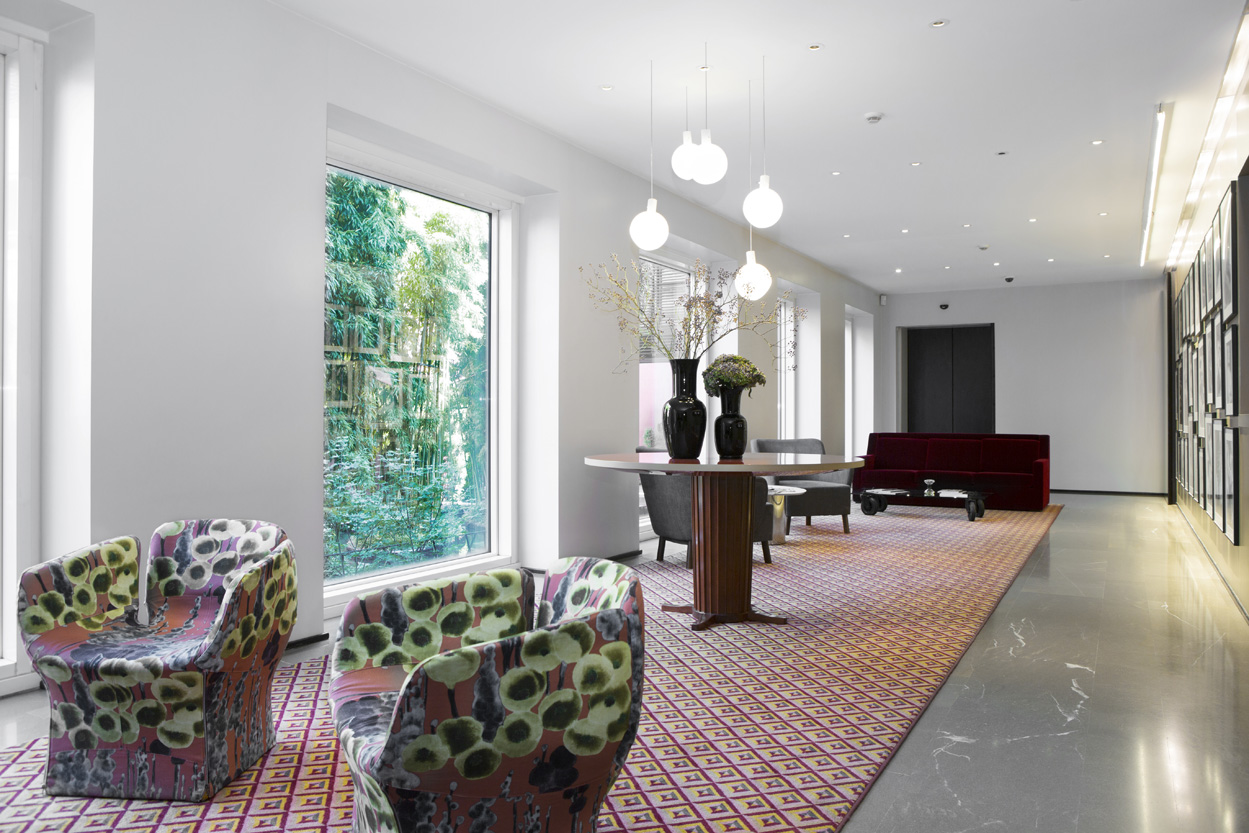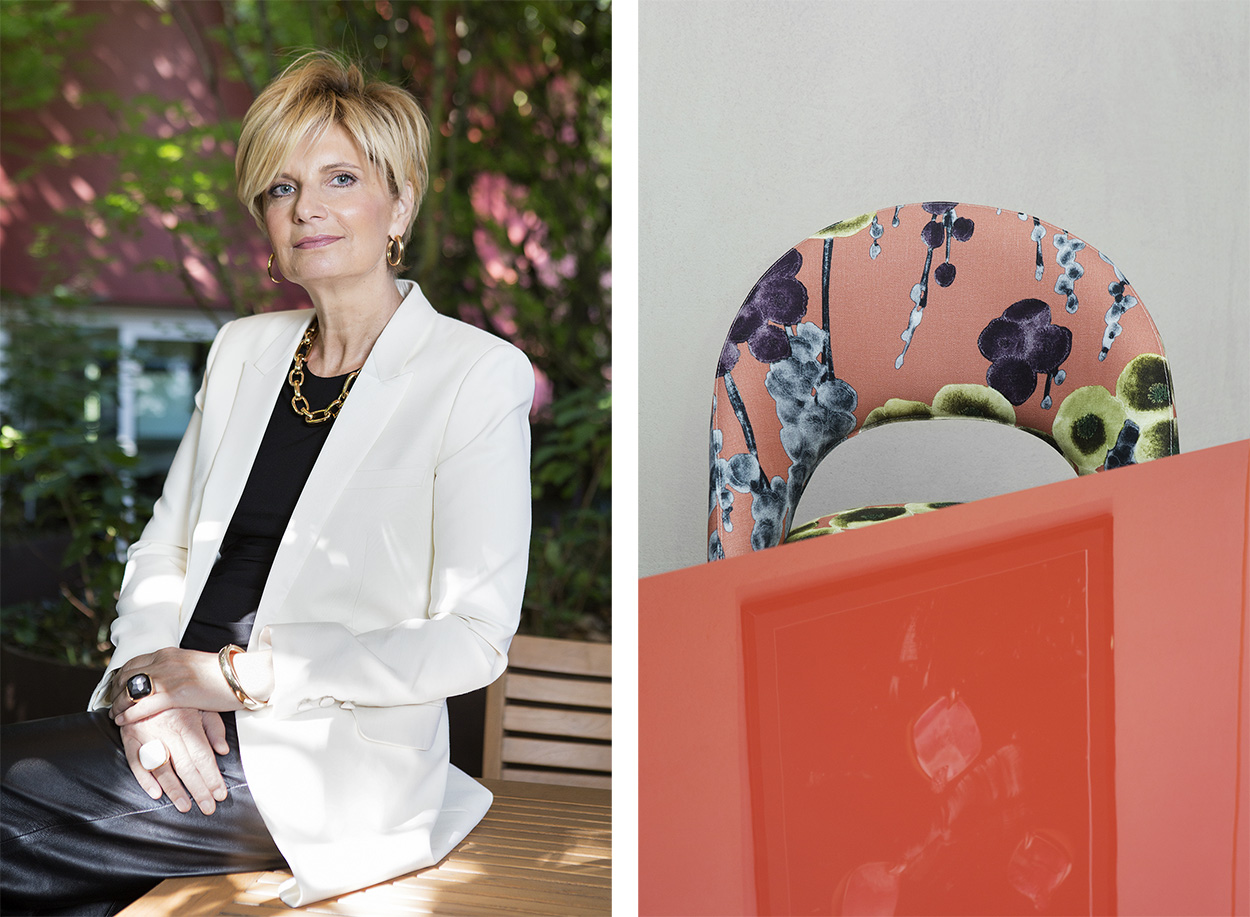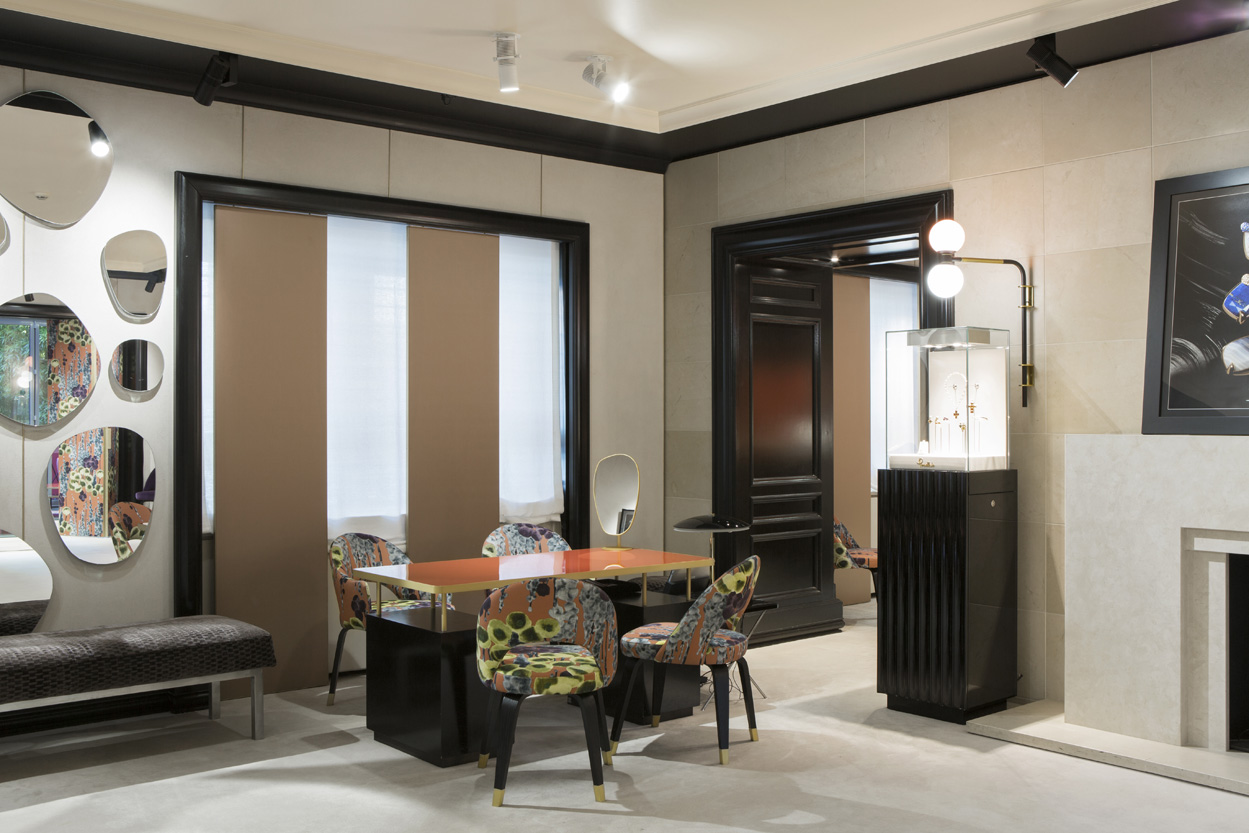You just came back to Milan from traveling. Do you spend a lot of time on the road?
What can I say—it’s very important to be out in the field. It helps to think about innovation. I was in New York, and now I’m going to Tokyo. New York is always extremely interesting coming from Europe because it’s so energizing. It’s still the most important market for luxury in the world. Then there is a whole group of consumers out there, women who are very interesting and very tasteful about jewelry, women who buy a Pomellato piece for themselves—they’re not waiting to get it as a gift. Everybody’s always flattered to be offered a jewel by a husband or a lover, but when it’s your choice it has a very symbolic value.
Did you wear Pomellato jewelry before you started at the company, in 2015?
I got my first Pomellato piece in 1989. My husband gave me this beautiful ring—with an incredible aquamarine cabochon, a rare stone now. Then when I changed jobs, and I wanted to celebrate that landmark with a reward that would last, I went to the Pomellato store in Paris and bought myself the three Nudo rings. Pomellato is like a longtime friend. When I came on board, I felt so close to it already. I understood the development of the brand, I remembered all the different launches. And I’m Milanese myself, so we have the same blood.
You actually spent most of your life living outside of Italy. How do you like being back here?
I moved to Paris as a teenager, and that’s an age when you really pick up on culture. I [took] this deep dive into French culture and became very Parisian. When I was offered a job at Bulgari in Rome [in 2012], I came back to Italy as an expat. And Rome can never be routine or boring—it’s so magnificent—but it’s very Roman, very dolce vita. In Milan, I found the kind of life that I was used to in Paris and London. There’s a strong momentum with the arts, food, design, and fashion, and you can expand that into what you’re doing in your work.
This is a big year for Pomellato, with its fiftieth anniversary. Is it possible to be radical at fifty?
Age is a technical detail. What’s important is your vision of the world—it’s about what can still impress and motivate you. But when you think of the word “radical,” you think of extremes, of shock, of something totally new. What is radical? Punk was radical, but today it’s difficult to find something truly radical, or extravagant, because we’ve seen it all.
Is it radical to be such a powerful female CEO in a country with so much gender inequality?
People see it as radically different from the norm, but I just see it as my job, and I feel competent. The additional privilege of being a woman working in jewelry is that I can have a gut feeling and a very pragmatic approach to the product and the business. I’ve had men as bosses, and in women’s way of managing there is more … well, maybe a sense of humor. At the end of the day, this is not rocket science. Let’s have fun. We don’t have to take everything so seriously.
I sometimes find it’s hard to get men to listen to me here in Italy. Do you?
I have two feelings about this. In America, it’s more comfortable for sure, but it’s very aseptic because you never know what people really think with all of this P.C. business of using the right words. It’s more clinical, and it bothers me more than the other way. Sometimes it’s good to put your zones of discomfort on the table.
What do you wish you could change at Pomellato?
I would love to have some way to accelerate time so things could go faster, because the timelines are very long. From the moment you think of an idea, it takes a long time to do the designs, get the stones, create the prototypes, et cetera. I would love to speed things up. But jewelry is eternal—it stays with you forever and gets passed on to the next generation. So, in the end, you have to take time. You can’t miss any micro-detail because it’s going to last forever and ever.




